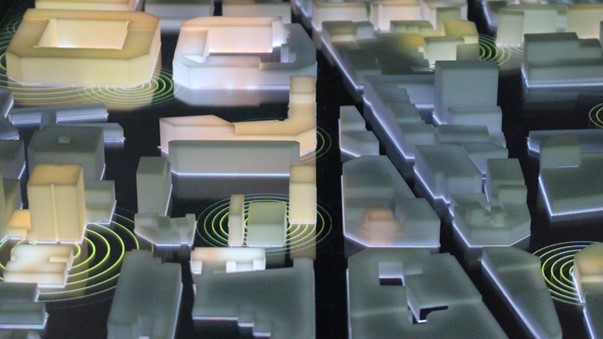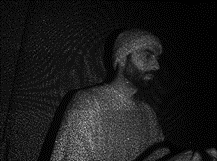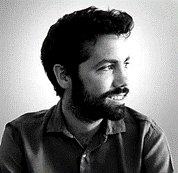Master in City & Technology Second Year 2020/22
Seminar: Design for Fabrication & Interaction
Faculty: Cristian Rizzuti & Shyam Zonca

Syllabus
Making the intangible tangible is essential for communicating and representing a project.
Digital Fabrication has enabled the leap from industrial manufacturing, which is hard to access, to affordable and accessible personal fabrication to allow for rapid prototyping in the development of projects.
The accessibility to rapid prototyping is the opportunity to transmit information in an engaging way.
At first, the relation between design and digital fabrication has been focused on the production of non-standard parts/components and on the speculation of forms as an end itself. Instead, we will focus on shapes and machines as a means to develop performance-based design with efficient fabrication methods.
Digital Fabrication techniques through the relation between computer data and machine-oriented fabrication can translate concepts in the most diverse and creative ways. With the use of a wide range of materials and processes, it is possible to create objects rich in details that are the physical and accurate representation of digital design.
To be communicative, design will be responsive, interactive and equipped with connectivity, following those steps: integration of electronics in the design, programming electronics, mechanical outputs and interaction between your projects and their environment.
Learning Objectives
The aim of the course is to explore the design opportunities arising from three common digital fabrication processes: Laser Cutting, CNC milling and 3D Printing. Assignments will be supported by an interactive exploration of each technology and material, going through a conceptual and prototyping process of design each week.
By the end of the course, every student should be familiar with digital modelling, fabricating, documenting and assembly. Students should be able to invent strategies to translate geometry into an articulated constructible solution, produce the CAD-CAM file for production and use the machines by themselves.
During the course, students will also learn to handle a digital workflow, in both the design and prototyping stages, learning to design projects efficiently and quickly; understand manufacturing processes and contemporary rapid prototyping, confer to the projects the ability to interact and respond to the environment around them.
Faculty

Cristian Rizzuti is an interactive media artist working in Barcelona. Graduating in Visual and Multimedia Art, Cristian has achieved an M-IA Master course at IUAV University of Venice focusing on interactive immersive environments.
After his studies, Cristian has presented his works in major events and locations in Europe, such as ZKM museum Karlsruhe, Sonar Barcelona, MAXXI museum Rome, Venice Biennal. Always inspired by Science and mathematics, Cristian has focused his personal investigation on the role of human perception and the definition of synesthetic spaces and emotional sounds connected to the body. Being inspired by digital arts, live media and interactive experiments, Cristian’s works can be described as light sculpture installations.

Shyam Francesco Zonca is a product designer, who focuses on creating truly durable and richly detailed goods within the creative process.
He holds a Bachelor’s degree in Industrial Design from Politecnico di Milano and with two academic experiences in Brazil and Portugal, and a Master of Science in Product Design for Innovation.
Since he moved to Spain he has been working with digital manufacturing in the academic area, IED and IAAC; and in projects that integrate digital technologies with handcrafted finishes.
In Milan and Rio de Janeiro he worked as Creative and Project Manager in different areas of design, including products, furniture, digital fabrication, events and visual merchandising. Following this line, he has executed not only creation works, but also collaborated with craftsmen and production control
